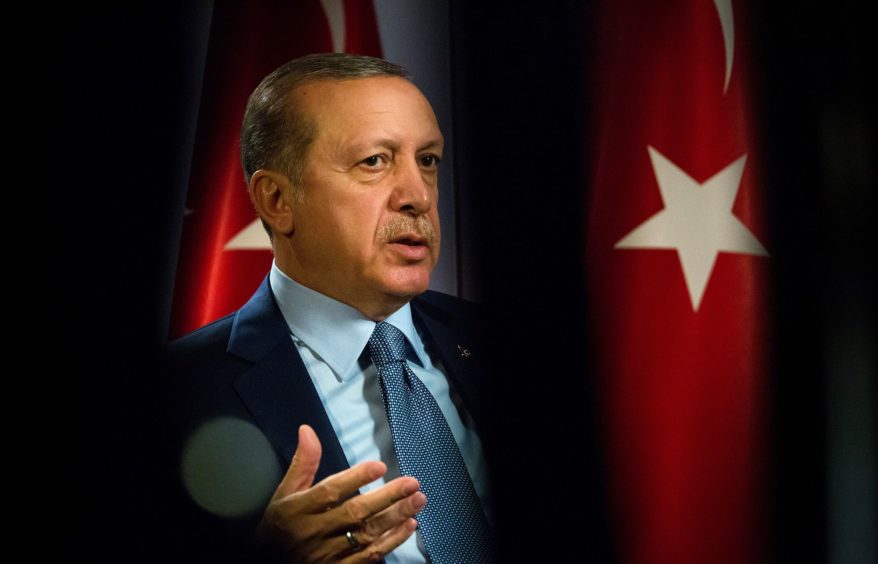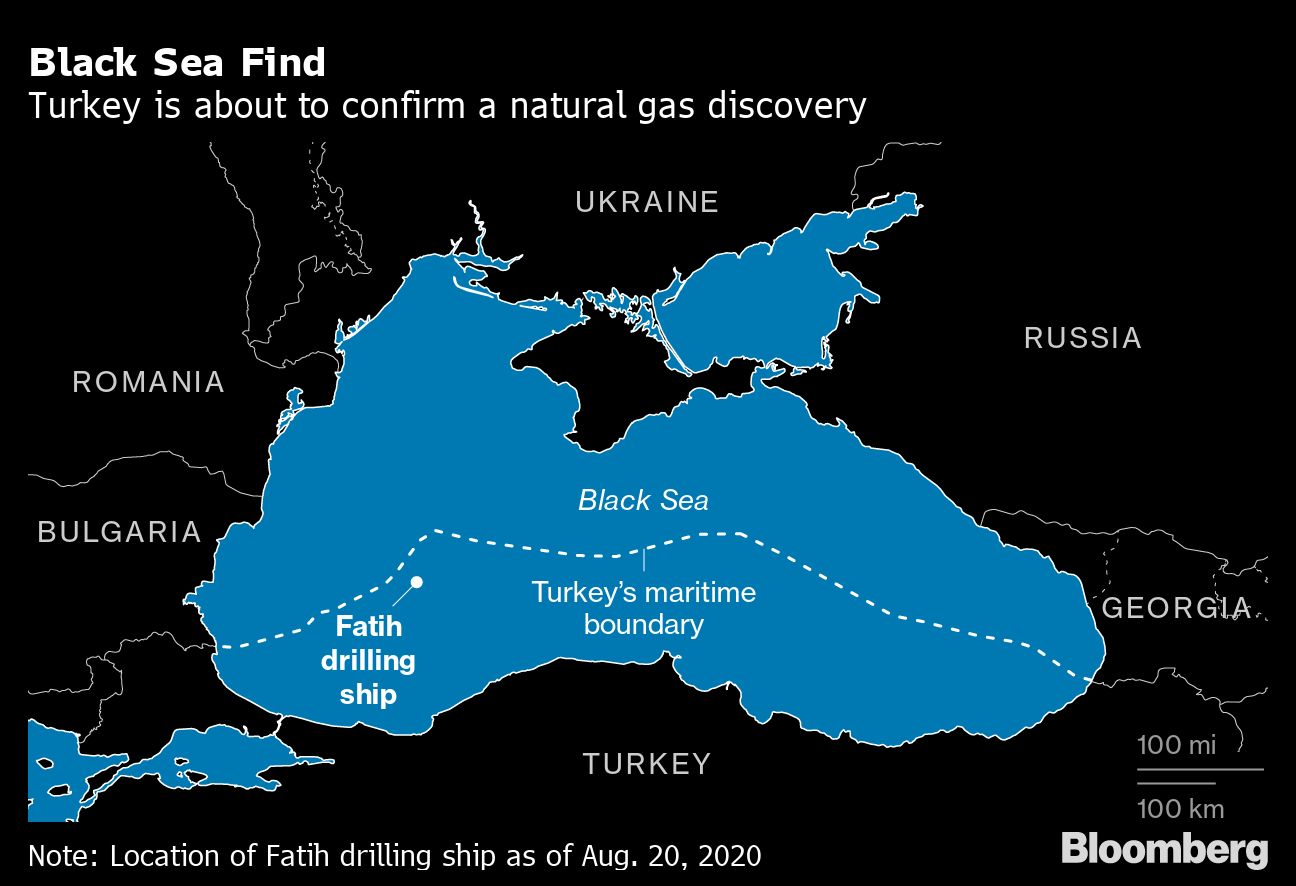
Speculation has mounted that President Recep Tayyip Erdogan will announce details of a major gas discovery in the Black Sea in Turkey when he speaks later Friday, after vowing to deliver news ushering in a “new era.”
Erdogan is due to hold a press conference at 3 p.m. local time in Istanbul, after officials said that Turkey is in the preliminary stages of conducting an appraisal of a natural-gas discovery. Investors who have grown more wary of Turkey in recent months as a lack of policy transparency undermined the lira will be looking for indications of how large the deposit is and how easy it will be to exploit. Production will likely take years and cost billions of dollars.
“The margins of this exploration might even be negative, given the low gas prices. But it means a strategic advantage for Turkey,” said Gulmira Rzayeva, research fellow at the Oxford Institute for Energy Studies. “The country has long-term import contracts about to expire and such a discovery can leverage its position in the negotiations.”
Turkey bought three drilling ships in recent years as it dramatically expanded energy exploration in the Black Sea and contested waters of the eastern Mediterranean. It’s keen to find sizable energy reserves to ease its heavy reliance on imports from Iran, Iraq and Russia, and support one of the biggest economies in the Middle East.
Treasury and Finance Minister Berat Albayrak described Erdogan’s promised news as marking “an axis shift” for Turkey.
Energy Minister Fatih Donmez said last month that the drilling ship Fatih, owned by the Turkish state-run oil company TPAO, had started exploration in the so-called Tuna-1 zone, off the Turkish Black Sea town of Eregli.
The ship has been drilling to a depth of 3,500 to 4,000 meters (11,500 to 13,000 feet), he said. TPAO, however, has no experience in deep-sea gas production and would likely need to enlist a major oil company to exploit a field. With oil and gas prices having slumped, the economics of developing such a find may be less attractive than in the past.
Tuna-1, some 150 kilometers from Turkey’s coast, is close to an area where maritime borders of Bulgaria and Romania converge and not far from Romania’s Neptun block, the largest gas find in the Black Sea in decades discovered eight years ago by Petrom and Exxon.
Romania has shallow-water gas projects, but a major deep-water find by eight years ago has still to be exploited. A company backed by the Carlyle Group is also exploring off Romania, aiming to get gas in 2021. Rosneft has explored in the Russian part of the Black Sea but without concrete results.
Turkey is mired in territorial disputes with Greece and Cyprus in the eastern Mediterranean as it searches for oil and gas in contested waters. France has temporarily increased its military presence to ward off Turkish steps, and German Chancellor Angela Merkel on Wednesday said the EU was concerned over the increased tensions.

